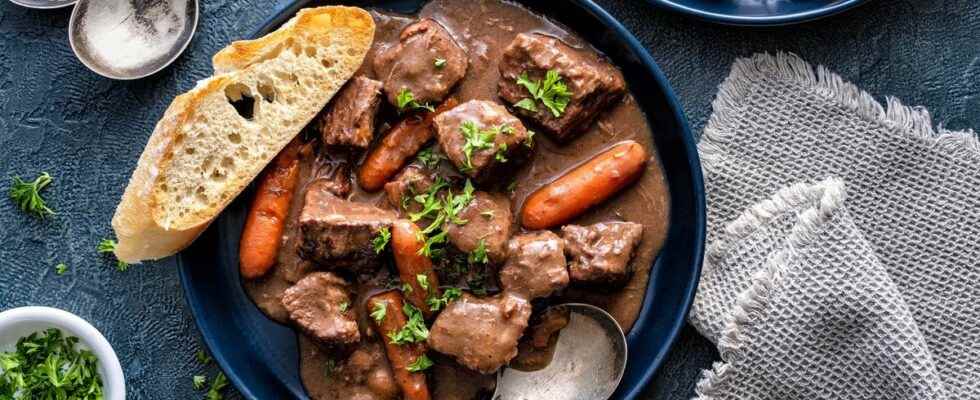Nothing better to warm up in winter than a good stew! But how do you limit calories? And what about the nutrients, are they preserved during cooking? Reconcile with stews with our easy and light recipes.
Even when we want losing weight, it is possible to indulge yourself with comfort food in winter. Although casseroles tend to evoke grandmother’s recipes that weigh on your stomach, all it takes is a few changes to lighten them up. In addition, this method of cooking has many advantages.
What are the benefits of casseroles?
The advantage of slow cooking is that you can use low-fat pieces of meatTHE collagen proteins present in the meat melt during cooking and turn into gelatin which coats the fibers of the meat making it tender and juicy. But be careful, cooking too long or at too high a temperature can denature these proteins, making the meat elastic and difficult to chew.
Slow cooking at low temperature also allows enhance the flavors of food. Add aromatics such as rosemary, thyme or bay leaf in a simmered dish will spice it up. Moreover, their properties antioxidants contribute to the protection of the cardiovascular system as well as the brain.
Other benefits of simmering your dishes:
- Economicthe cuts of meat and vegetables used are among the cheapest.
- Time saving, once the preparation is simmering over low heat, time is freed up for other activities around the house. In addition, it is possible to prepare several portions to keep for several days or freeze.
- Healthya stew can cook many vegetables and does not require large amounts of fat.
Does food lose its nutrients when simmering?
When simmering food, proteins, carbohydrates and lipids remain intactas well as most minerals and trace elements. This cooking facilitates theassimilation of nutrients And promotes the digestion. Cooking over fire is like this ideal for fibrous vegetables such as leek, celery or sweet potatoes. Conversely, cooking over high heat causes them to lose nutrients and antioxidants.
However, the vitamin content of the ingredients is not guaranteed. You must know that vitamins are fragile, each method of food preparation can affect them. In the case of a stew, cooking affects two vitamins in particular:
- there vitamin C dissolves in water, it is also sensitive to heat. Ingredients can therefore lose up to 50% of their vitamin C content by simmering;
- THE B vitamins are also thermo-reactive, 60% of B1 vitamins And B3 escape from the food but fortunately the majority ends up in the sauce or the cooking liquid.
In conclusion, simmering has the disadvantage of dissolving vitamin C, but the mineral salts and trace elements are on the other hand well preserved, in particular in the cooking juices.
The board : to take advantage of all the vitamins and minerals, indulge yourself: dress up your plate!
Sources:
To discover :
The 12 Foods Highest in Vitamin C to Fight Seasonal Fatigue
Recipes with kiwis: 18 healthy and easy ideas to keep in shape this winter
Slimming: 9 tips for a breakfast without (too much) added sugar








